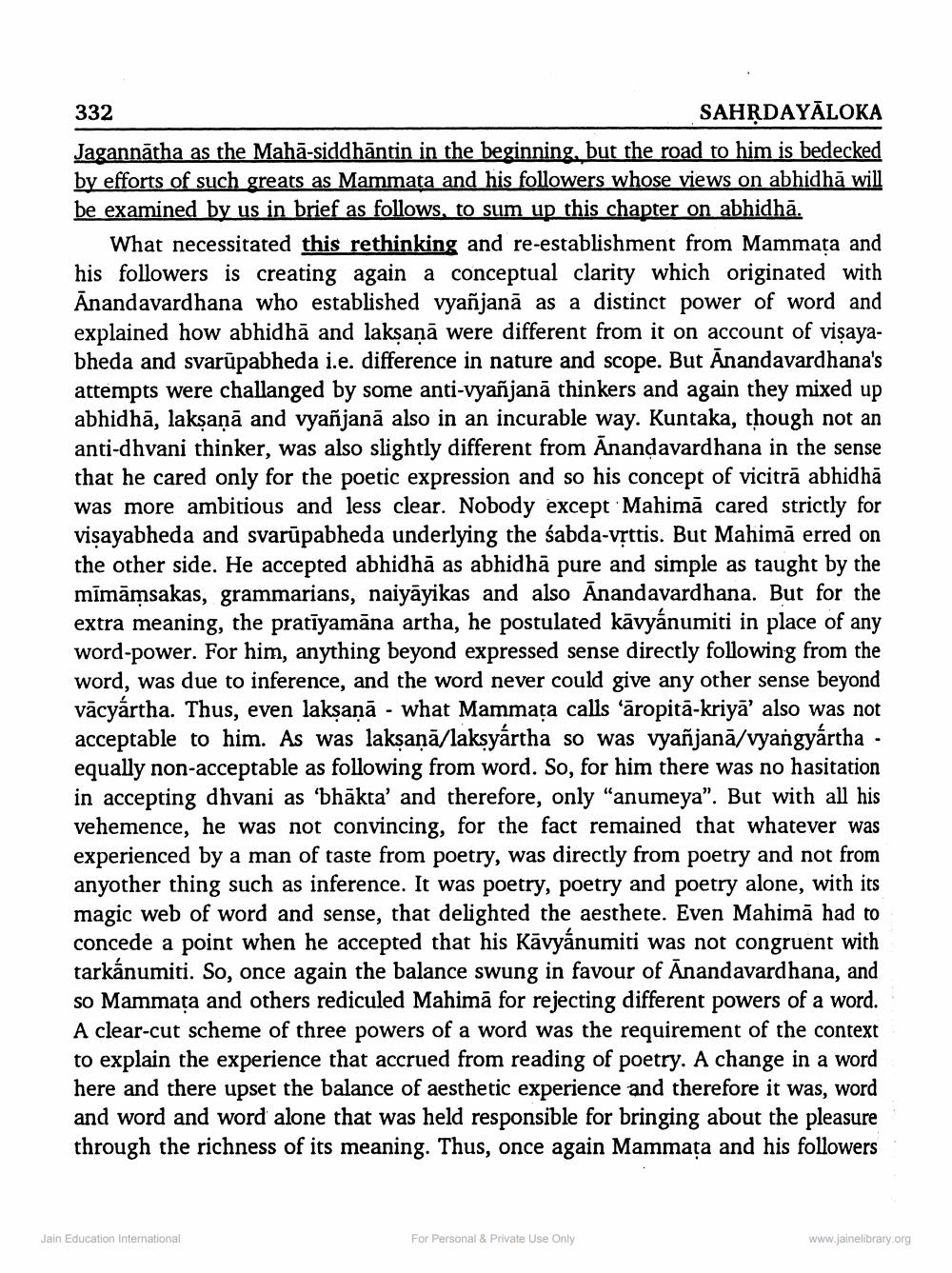________________
332
SAHRDAYĀLOKA Jagannātha as the Mahā-siddhāntin in the beginning, but the road to him is bedecked by efforts of such greats as Mammata and his followers whose views on abhidhā will be examined by us in brief as follows, to sum up this chapter on abhidhā.
What necessitated this rethinking and re-establishment from Mammața and his followers is creating again a conceptual clarity which originated with Anandavardhana who established vyañjanā as a distinct power of word and explained how abhidhā and laksanā were different from it on account of visayabheda and svarūpabheda i.e. difference in nature and scope. But Anandavardhana's attempts were challanged by some anti-vyañjanā thinkers and again they mixed up abhidhā, laksana and vyanjana also in an incurable way. Kuntaka, though not an anti-dhvani thinker, was also slightly different from Anandavardhana in the sense that he cared only for the poetic expression and so his concept of vicitrā abhidhā was more ambitious and less clear. Nobody except Mahimā cared strictly for vişayabheda and svarūpabheda underlying the sabda-vșttis. But Mahima erred on the other side. He accepted abhidhā as abhidhā pure and simple as taught by the mīmāmsakas, grammarians, naiyāyikas and also Anandavardhana. But for the extra meaning, the pratīyamāna artha, he postulated kävyánumiti in place of any word-power. For him, anything beyond expressed sense directly following from the word, was due to inference, and the word never could give any other sense beyond vācyártha. Thus, even laksaņā - what Mammaţa calls ‘āropitā-kriya' also was not acceptable to him. As was laksanā/laksyártha so was vyañjanā/vyangyártha - equally non-acceptable as following from word. So, for him there was no hasitation in accepting dhvani as 'bhäkta' and therefore, only "anumeya". But with all his vehemence, he was not convincing, for the fact remained that whatever was experienced by a man of taste from poetry, was directly from poetry and not from anyother thing such as inference. It was poetry, poetry and poetry alone, with its magic web of word and sense, that delighted the aesthete. Even Mahimā had to concede a point when he accepted that his Kāvyánumiti was not congruent with tarkánumiti. So, once again the balance swung in favour of Anandavardhana, and so Mammata and others rediculed Mahimā for rejecting different powers of a word. A clear-cut scheme of three powers of a word was the requirement of the context to explain the experience that accrued from reading of poetry. A change in a word here and there upset the balance of aesthetic experience and therefore it was, word and word and word alone that was held responsible for bringing about the pleasure through the richness of its meaning. Thus, once again Mammața and his followers
Jain Education International
For Personal & Private Use Only
www.jainelibrary.org




